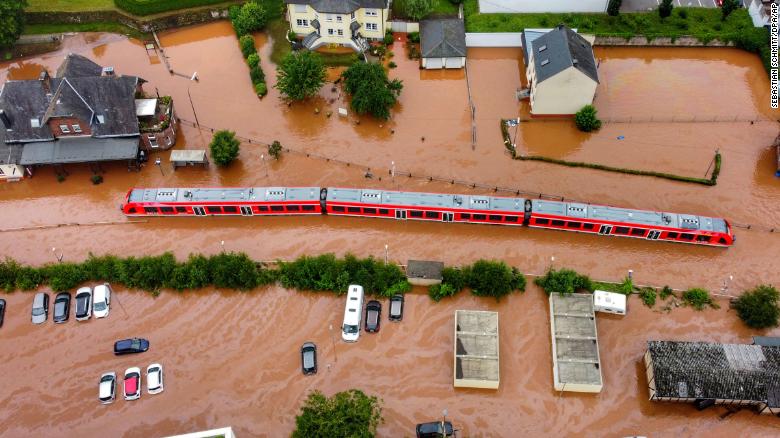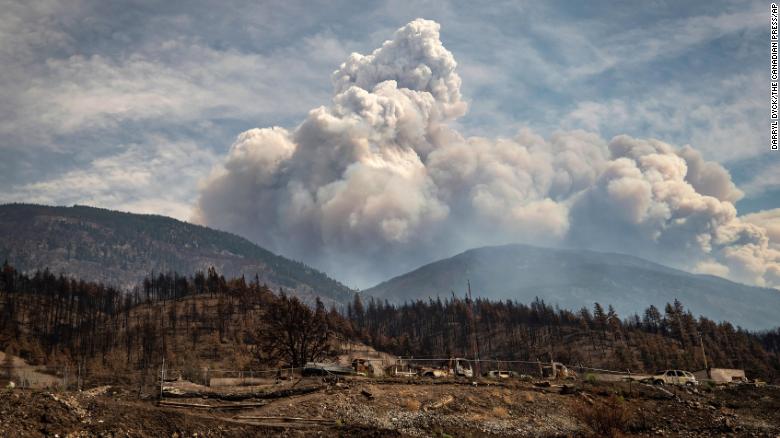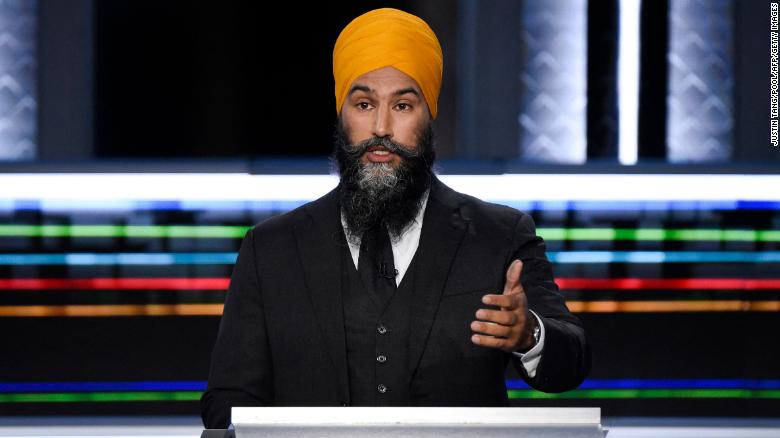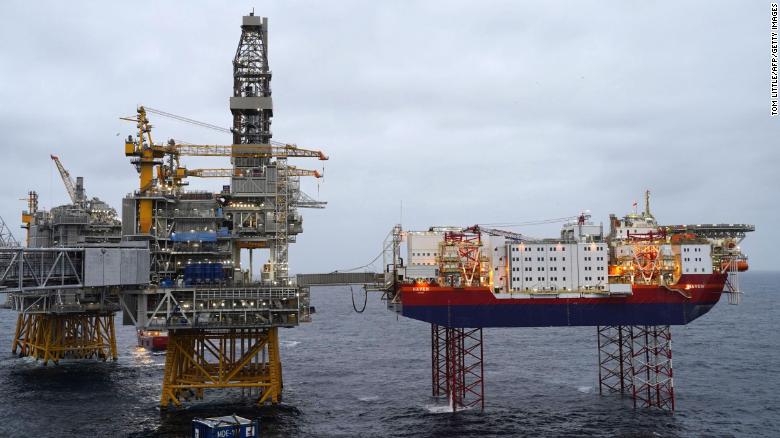
It was just last week that Canada’s British Columbia finally ended its state of emergency, more than two months after wildfires tore through parts of the province and reduced an entire village and its surroundings to ash.
It wasn’t a random, unfortunate disaster. Scientists said the heatwave that supercharged the fires was “virtually impossible” without the greenhouse gases trapped in the atmosphere — now at the highest concentration in more than 800,000 years — put there by humans driving, flying, working and eating, and all the other things we humans do that rely on fossil fuels.
The climate crisis has been a lingering concern for voters for a long time, though it’s often overshadowed by other issues that feel more immediate, like unemployment rates, taxes and health care.
Climate change rarely makes or breaks an election. But the tide appears to be turning.
Canadians, who go to the polls on Monday, are among several nations casting votes on the heels of record-smashing, often deadly extreme weather this summer, boosted by climate change. Hundreds of people died in the US and Canada and dozens others in the Mediterranean from heat and fires, while flash floods killed more than 220 people in Germany and Belgium, and more than 300 in China.

In the run-up to Canada’s parliamentary vote, the climate crisis has featured heavily in campaign activities, media coverage and debates.
It was the same story in Norway, which voted last Monday, and in Germany, which will hold its elections on September 26.
Finally, the climate crisis is on the ballot.
“Clearly, climate change was something that a lot of Canadians were experiencing or have experienced in ways that perhaps they hadn’t before,” Shane Gunster, an associate professor in the School of Communication at Simon Fraser University in British Columbia, told CNN.
“For the first time, you actually have all of the major parties in the Canadian election that have at least a serious climate plan to propose.”
Anthony Leiserowitz, director of the Yale Program on Climate Change Communication, said that globally, the climate crisis was increasing in importance among voters as an election issue. There are three good reasons why.
“One is just simply that the science itself has gotten ever stronger and more frightening, frankly,” he said.
A state-of-the-science report by the UN’s Intergovernmental Panel on Climate Change (IPCC) was published in August as fires raged and floods engulfed communities across the Northern Hemisphere. The report called humans’ role in the crisis “unequivocal,” and warned that climate change was happening faster than previously thought.
Global temperatures are already around 1.2 degrees Celsius above pre-industrial levels. Scientists say the planet should stay below 1.5 degrees to avoid even more frequent extreme weather and relatively unknown climate tipping points.
“Another critical thing that’s been happening is that media coverage has both increased in quantity and in quality,” Leiserowitz said.
“And the third critical piece is, of course, these extreme events — all-time, record-setting and just eye-popping kinds of disasters happening around the world, which is increasingly being attributed to being made more severe by climate change.”
What was extraordinary about this summer was that records were being shattered not just by the usual fraction of a degree but by huge margins. Lytton, the Canadian village that was burned down by wildfires, also experienced the country’s hottest temperature on record in late June, hitting 49.6 degrees Celsius (121 degrees Fahrenheit). That’s more than 4 degrees higher than the previous record.

The climate crisis has fueled a surge for Green or climate-centered parties in places like Germany and Norway. In Canada, the Greens are struggling, but the progressive New Democratic Party (NDP), led by Jagmeet Singh, has capitalized on the interest.
The NDP is polling with 20% of the vote, not that far from Prime Minister Justin Trudeau’s Liberals and the main opposition Conservatives, which are both at around 30%, according to a poll of polls by state broadcaster CBC. Those projections translate to more seats and a likely victory for Trudeau’s party.
Like in Norway, discourse around the climate crisis in Canada invariably centers on oil and gas. Canada is the world’s fifth-biggest crude oil producer, and Trudeau is coming under increasing pressure to take an ax to fossil fuel subsidies. He pledged to reduce them when he was first elected, but they have only gone up under his six-year leadership.
The same is true for Canada’s greenhouse gas emissions, which in 2019 were actually higher than when it signed the 2015 Paris Agreement.
In fire-ravaged British Columbia, it’s the NDP that’s in the lead, polling by state broadcaster CBC shows.
Its leader, Singh, is calling for more ambitious climate plans than the Liberals and Conservatives, including halving emissions by 2030, compared with 2005 levels. The Liberals’ current reduction target is 40% to 45% and the Conservatives want to reduce it to 30%.
“What we shouldn’t do is what Mr. Trudeau did: Set targets and miss them,” Singh said at a recent leaders’ debate. “We shouldn’t promise to end fossil fuel subsidies and then increase them. We shouldn’t put a price on pollution and then exempt the biggest polluters.”
German parties seek to better Merkel on climate
The NDP isn’t likely to win the election, or even become the main opposition, but its strong polling means Singh could become a kingmaker in a potential Trudeau-led coalition. The Liberals are projected to get the most seats, but fall short of a majority. It could choose to rule as a minority government, but even if it did, it would need the NDF as an ally.
It’s a role that smaller, climate-focused parties are increasingly finding themselves in around the world.
In Germany, the Green Party is likely to crown the king.
“Unlike in election years in the past, we’ve seen climate as a core issue right from the start — given people’s insistence on climate action in the polls, all major parties have made it a main element of their rhetoric,” said Jérémie Gagné, a senior associate at the research group More in Common.
It would be near impossible not to in the country following its deadly floods, which scientists described as a one-in-500-year weather event. Parts of Germany experienced more rain in a day than they typically would in a whole month.
Gagné said that Germans were feeling overwhelmed and frustrated by trying to reduce emissions in their role as consumers, while political and business figures with power weren’t doing their fair share.
“So, there is a widespread demand for politics to take binding action that leads the way and ensures fair contributions by all,” Gagné said.
The German election will mark the end of Chancellor Angela Merkel’s 16-year rule. She was regarded as a formidable leader in the country, but also internationally, but she wasn’t always strong on climate.
Her government, which is projected to lose the election, had planned to continue using coal until 2038. It has also stayed loyal to the idea of the controversial Nord Stream 2 gas pipeline from Russia, as her critics argued now was not the time to be investing in more fossil fuels.
But now, all parties, with the exception of the far-right Alternative for Germany (AfD) party, are putting forward robust climate plans.
It’s unclear, however, whether these promises might translate into votes. When German leaders have debated the issue, they haven’t differed much in their messaging, and the conversation quickly turns to technicalities, which isn’t drawing public interest. The daily newspaper Die Welt even suggested it might be the most boring election ever.
Norway delivers an electoral blow to climate
With climate quite firmly on the ballot in Canada and Germany, the question now is, “Can climate actually win?”
German’s Greens are polling with around 16% of the vote, though it was a few weeks ago polling roughly the same as the two mainstream parties. After decades on the fringe, it’s the first time even the thought of winning is a possibility.
The Greens in Germany were once a one-policy party, but now, under the leadership of Annalena Baerbock, it has a position on many things, from the country’s role in the EU, to the future of the transatlantic alliance NATO and relations with Russia and China.
Broadening the agenda is the only way for Green or climate-centered parties anywhere to have a realistic chance of election. Even for some voters for whom the climate crisis is a priority, voting for a one-policy party can feel impractical.

A number of elections have been called “climate elections” in the past, but that hasn’t often meant transformative change in politics.
Results in Norway are a case in point, and a sobering reminder of just how slow political change can be.
The Green Party there was projected to surge in last Monday’s vote and was widely expected to become a kingmaker in coalition talks, but it has instead been sidelined, as the center-left Labour Party tries to form a new government without it.
Norway is Europe’s second-biggest oil producer, after Russia, and the future of its oil industry, and how it sits at odds with the country’s otherwise laudable climate credentials, was central to the election campaign.
The Greens were the only one calling for an immediate end to more oil and gas exploration, and they wanted to phase out oil production altogether by 2035.
The party did win three seats, two more than it previously had, but the result was well below expectations.
The Greens’ secretary, Torkil Vederhus, expressed frustration that even the dramatic summer was insufficient to convince the Norwegian people that the climate crisis should be their first concern.
Interest in climate issues among voters surged during the country’s heatwave and as fires devastated other European nations, and after the release of the IPCC report. But that interest faded, highlighting just how short voters’ attention spans can be.
“I’m kind of at a loss right now on how to get the message across, actually,” Vederhus told CNN.
But politics never ends with an election, and the way Verdhus sees it, the Greens’ surge in the period before the vote forced other parties to make promises on climate. The Greens now intend to hold them accountable on those, he said.
“We think that all the parties have promised a lot on climate during the election, so there’s been a shift in campaigning,” Verdhus said.
“And now there’s quite a big expectation on that climate policy being delivered.”
As reported by CNN
